Choosing Your First Property: Home Sweet Home or Investment Opportunity?
When diving into the world of real estate, many first-time buyers automatically think of purchasing a primary residence. However, have you ever considered the possibility of starting with an income property instead? This isn't always a common consideration, but it can be a strategic move depending on your financial goals and personal circumstances. Let’s explore the considerations of each option to help you determine if this is something you should consider for your first property purchase.
Primary Residence
You might want a primary residence to establish stability and security, enjoying the personal freedom that comes with owning your home. It's an opportunity to build equity over time, benefit from tax deductions, and have a place to truly call your own.
Considerations:
Stability and Security: Owning your home provides a sense of stability and personal freedom. You have control over your living space without the constraints of a landlord.
Tax Benefits: Homeowners can take advantage of tax deductions, including mortgage interest and property taxes, which can make ownership more financially attractive.
Equity Building: As you pay down your mortgage, you build equity in your home, which can be leveraged for future investments or financial needs.
Emotional Satisfaction: There's a unique emotional satisfaction that comes from owning your space, customizing it to your preferences, and establishing roots in a community.
Challenges:
Financial Commitment: Purchasing a home requires a significant financial commitment, including a down payment, mortgage payments, property taxes, maintenance, and insurance.
Market Risk: Real estate markets can fluctuate, and while home values generally appreciate over time, short-term market downturns can impact your investment.
Limited Liquidity: Real estate is not a liquid asset. Selling a home takes time, and accessing the equity in your property is not as straightforward as selling stocks or bonds.
Income Property
On the other hand, opting for an income property can generate a steady stream of rental income, offer tax advantages specific to investment properties, and contribute to long-term wealth accumulation through property appreciation.
Considerations:
Income Generation: Rental properties can generate a steady stream of income, potentially covering the mortgage and providing additional cash flow.
Tax Advantages: Investment properties offer tax benefits, such as deductions for operating expenses, depreciation, and mortgage interest.
Long-term Appreciation: Like primary residences, income properties can appreciate in value over time, contributing to long-term wealth.
Portfolio Diversification: Owning an income property diversifies your investment portfolio, reducing risk by spreading investments across different asset classes.
Challenges:
Property Management: Managing a rental property involves time, effort, and sometimes dealing with difficult tenants. You may need to hire a property management company, which adds to your expenses.
Market Risk: Rental income can be unpredictable, especially in markets with fluctuating demand or economic downturns.
Financial Risk: Being responsible for two mortgages (your primary residence and income property) can be financially challenging if rental income is not consistent.
Maintenance Costs: Upkeep and repairs can be costly and time-consuming, impacting your overall return on investment.
Factors to Consider
Financial Stability: Evaluate your financial situation. Are you in a stable position to manage a mortgage, property taxes, maintenance, and potential rental vacancies?
Market Conditions: Research local market conditions in Southern California and Ventura. These areas have unique dynamics that can influence property values, rental demand, and potential appreciation.
Long-term Goals: Consider your long-term goals. Are you looking for a stable living situation, or are you more interested in building an investment portfolio and generating passive income?
Lifestyle Preferences: Think about your lifestyle preferences. Do you value the emotional satisfaction and stability of owning your home, or are you comfortable managing a rental property and dealing with tenants?
Special Considerations for Southern California and Ventura
Southern California, including Ventura (where I live!), is known for its desirable climate, beautiful landscapes, and high demand for real estate. Here are some special considerations for this region:
High Property Values: Real estate in Southern California tends to be expensive. This means higher initial costs for both primary residences and income properties.
Rental Demand: The region often has strong rental demand, especially in desirable areas near the coast, making income properties potentially lucrative.
Market Volatility: While property values generally appreciate, Southern California markets can be volatile. It's essential to be prepared for market fluctuations.
Quality of Life: Ventura offers a high quality of life with its coastal location, outdoor activities, and vibrant community. This makes it an attractive place to live and invest.
Deciding whether your first property purchase should be a primary residence or an income property depends on your financial situation, long-term goals, and lifestyle preferences. Both options have their advantages and challenges, and understanding these can help you make the best decision for your circumstances.
In Southern California, market dynamics and lifestyle factors add unique considerations that should be factored into your decision-making process. Whichever path you choose, investing in real estate is a significant step towards building wealth and securing your financial future.

